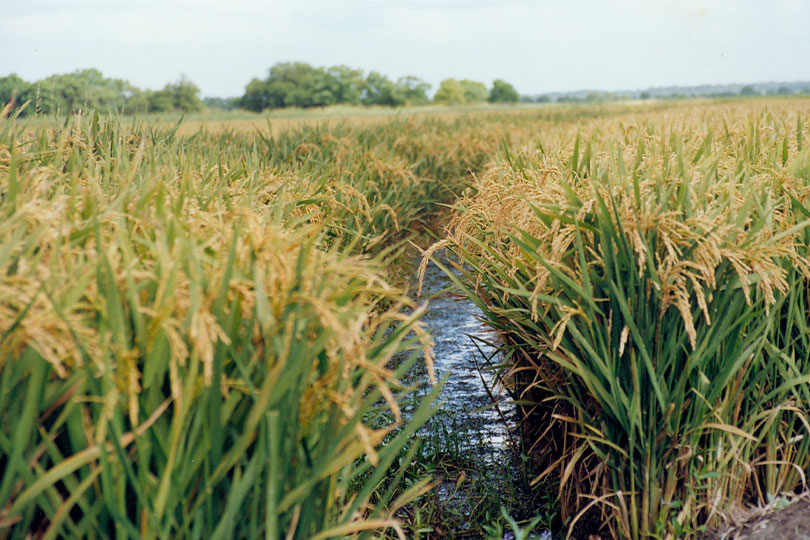By Julie Tomascik
Editor
Water from the Highland Lakes won’t be available in 2023 for most of the agricultural customers in Colorado, Matagorda and Wharton counties.
The decision was made by the Lower Colorado River Authority (LCRA) on March 1. The agency cited ongoing drought conditions, which are impacting inflows and levels at Lake Buchanan and Lake Travis—the two water supply reservoirs in the Highland Lakes.
The Hill Country watershed that feeds the Highland Lakes is considered to be in severe drought.
LCRA’s state-approved water management plan requires it to cut off Highland Lakes water to agricultural customers in the Gulf Coast, Lakeside and Pierce Ranch operations this year. The plan is based on the intensity and duration of drought conditions, along with the amount of water in the two lakes on March 1.
The combined storage in the lakes on March 1 was 1.037 million acre-feet, or about 52% of capacity, according to LCRA.
“The Water Management Plan takes into account drought situations like the one we’re in now,” John Hofmann, LCRA executive vice president of Water, said in a statement. “Extremely low inflows combined with evaporation and water use by LCRA customers have led to the decline in storage in lakes Buchanan and Travis. During hot, dry times like these, the plan requires the curtailment of water to interruptible customers so LCRA can continue meeting the needs of cities, businesses and industries.”
LCRA has two categories for customers—firm and interruptible.
Firm customers are entities such as cities, municipal utility districts, businesses and power plants that purchase water that will be available.
Interruptible customers are agricultural customers in the lower basin that purchase water that is limited or cut off during droughts.
Water was cut off from agricultural customers in summer 2022 for the second growing season. And the next time Highland Lakes water could be available for farmers and ranchers in the lower basin will be spring 2024, according to LCRA.
Hopes are drying up in the area as farmers face high input costs, a lack of irrigation water and ongoing drought conditions.
“The decision to once again cut off water to downstream rice farmers is disappointing, but not unexpected,” Jay Bragg, Texas Farm Bureau associate director of Commodity and Regulatory Activities, said. “The Colorado River Water Management Plan was written to ensure that the ever-growing population of Austin and the Highland Lakes have an ample supply of water. That means less water to grow crops.”
If the combined storage in Lakes Buchanan and Travis falls below 900,000 acre-feet, or about 45% of capacity, and interruptible supplies have been curtailed, LCRA will move to Stage 2 of the drought contingency plan and will ask firm customers to reduce water use by 10 to 20%.

